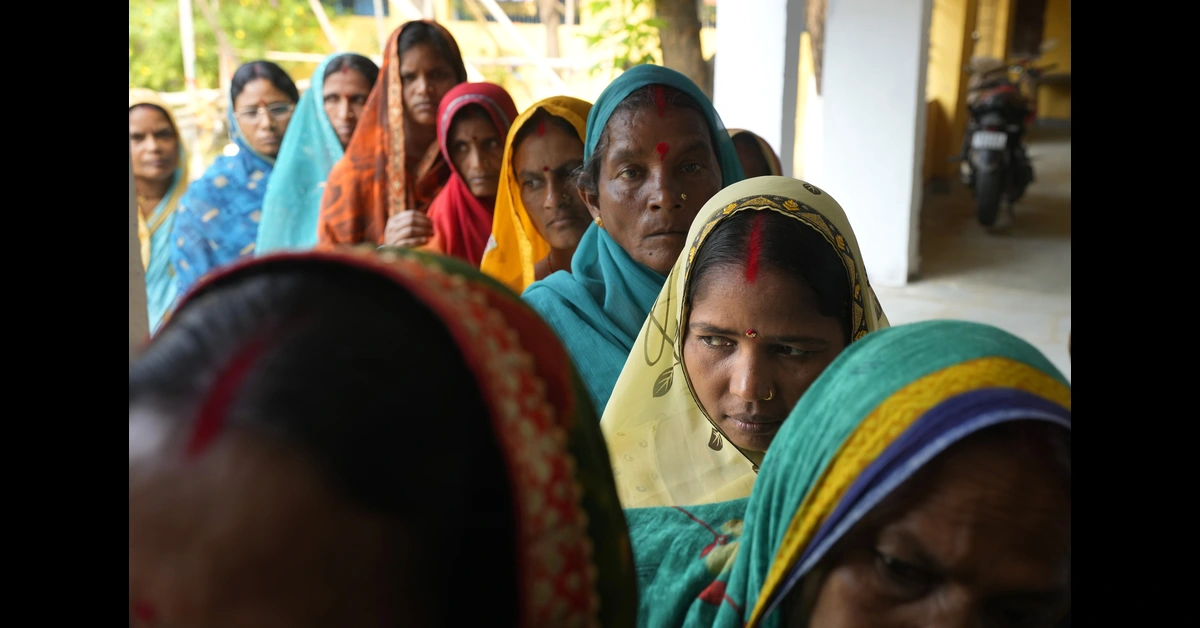India’s massive six-week-long election has surpassed its halfway mark, with millions of voters across 96 constituencies having cast their ballots. As the electoral process progresses, Prime Minister Narendra Modi’s Bharatiya Janata Party (BJP) faces mounting pressure amid concerns over unemployment and inflation.
Key Players and Issues
Prime Minister Modi, seeking a third consecutive term, confronts the challenge of addressing voter discontent while rallying support for his party. The BJP and its allies vie against an alliance of over two dozen opposition parties, including the Indian National Congress, amidst growing public scrutiny.
Electoral Landscape
Phase 4 of the election, encompassing nine states and one union territory, holds significant implications for both major political parties. While the BJP traditionally dominates in certain regions, opposition parties aim to secure crucial seats in contested territories.
Kashmir Valley’s Participation
The voting in Srinagar, the main city in Indian-administered Kashmir, marks a milestone since Modi’s decision to revoke the region’s autonomy in 2019. The absence of BJP participation reflects potential challenges to Modi’s narrative of a unified Kashmir.
Political Dynamics and Rhetoric
Modi’s campaign rhetoric, characterized by polarizing statements targeting minority groups, has drawn criticism and raised concerns among voters. His assertions regarding welfare programs and wealth redistribution have ignited debates over religious and socioeconomic divisions.
Historical Context of Kashmir Conflict
The participation of Kashmir in the election underscores the longstanding conflict between India and Pakistan over the region’s sovereignty. Despite efforts to integrate Kashmir into the Indian mainstream, tensions persist, fueled by competing nationalist narratives.
Doubts and Challenges
Analysts cast doubt on the BJP’s ability to secure a decisive victory, citing lower voter turnout and shifting public sentiments. Modi’s strategic shift in campaign messaging reflects efforts to counter growing skepticism and maintain electoral momentum.
Opposition’s Perspective
The Congress party advocates for inclusive policies and equitable development, challenging the BJP’s narrative of divisive politics. Calls for unity and socioeconomic progress resonate with voters disillusioned by rising inequality and economic uncertainty.
Voter Sentiments
Amidst concerns over unemployment and inflation, voters prioritize pragmatic solutions over divisive rhetoric. The quest for meaningful change and accountable governance transcends religious and ethnic affiliations, reflecting a desire for inclusive progress.
Voices from the Ground
Citizens across diverse regions express their aspirations for development and prosperity, emphasizing the need for competent leadership and effective governance. Their testimonies underscore the significance of grassroots perspectives in shaping electoral outcomes.
Conclusion
As India’s election progresses, Phase 4 voting reflects a complex interplay of political dynamics, societal aspirations, and historical legacies. Amidst competing narratives and electoral strategies, the electorate’s verdict will ultimately shape the nation’s trajectory and define its democratic ethos. Amidst competing narratives and electoral strategies, the electorate’s verdict will ultimately shape the nation’s trajectory and define its democratic ethos.
Lok Sabha Elections 2024: Key Highlights from May 7
FAQs
What are the major issues driving voter sentiment in India’s election?
Unemployment, inflation, and economic inequality are among the key concerns influencing voter decisions.
What is the significance of Kashmir’s participation in the election?
Kashmir’s involvement highlights the complexities of India’s territorial disputes and the challenges of integrating marginalized regions into the electoral process.
How does Prime Minister Modi’s campaign rhetoric impact voter perceptions?
Modi’s polarizing statements have sparked debates over religious and socioeconomic divisions, prompting calls for inclusive governance and pragmatic solutions.
What are the opposition’s main criticisms of the BJP’s governance?
The opposition parties, particularly the Congress, critique the BJP’s divisive politics and prioritize inclusive policies aimed at addressing socioeconomic disparities.
What factors are shaping voter priorities and expectations in India’s election?
Voters prioritize development, accountability, and effective governance, seeking leaders who can deliver tangible improvements to their lives and communities.
